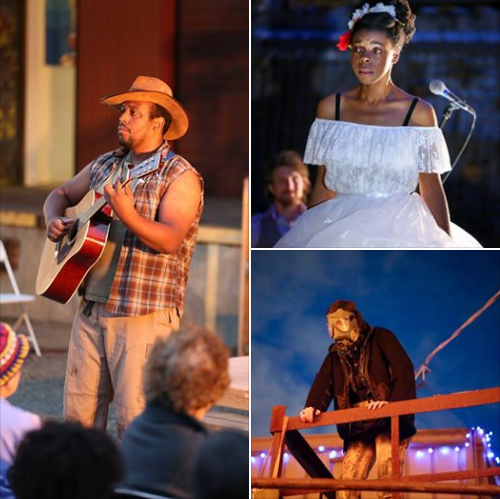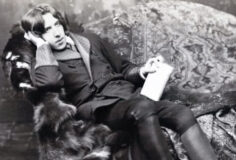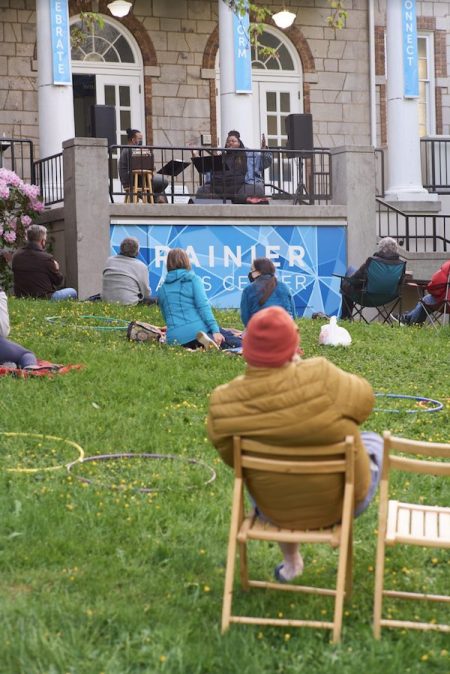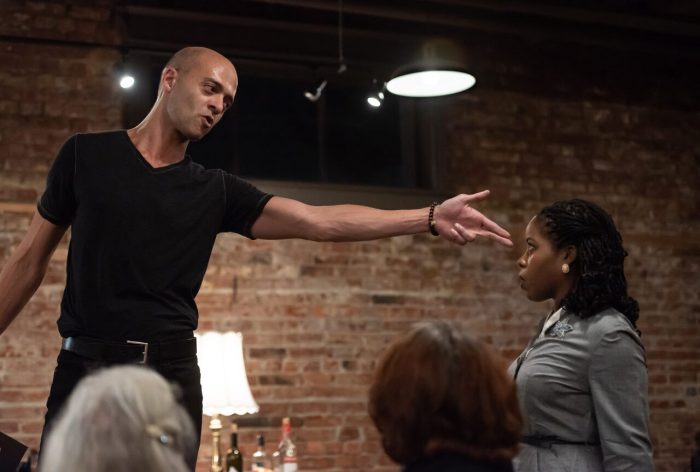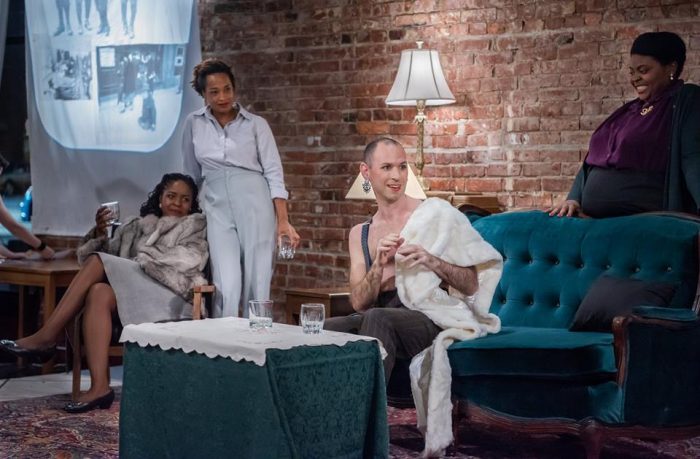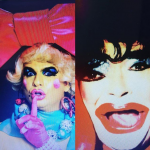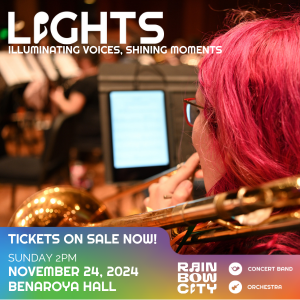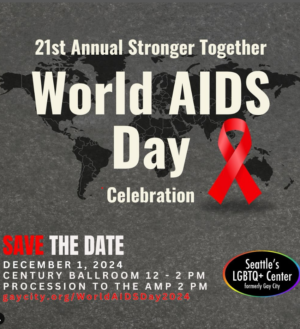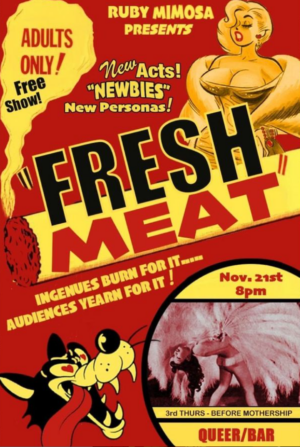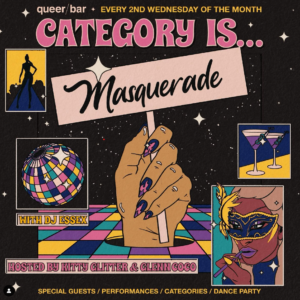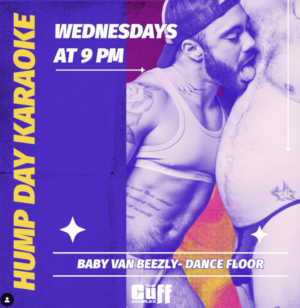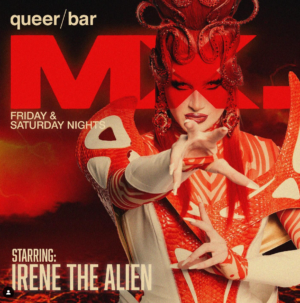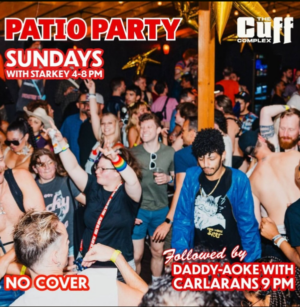Outdoor theater is not one of my favorite things.
Bugs…fussy children…oafs munching on brie and burping up chardonnay…damp or hard ground…blazing sun…
NOISY AIRPLANES flying over head.
Too many things to distract from the story being told. Theater (and literature and narrative film/television) is about telling tales and about the audience plunging into them…being immersed.
SOOOOOOOOOOOOOOO…I was a bit leery about The Williams Project’s production of Federico García Lorca’s 1932 rural tragedy of BLOOD WEDDING, being presented as an outdoor site specific production at the Equinox Studios in Georgetown. Billed as a “block party” the play is being produced at multiple sites within the block long complex of buildings. I had faith in The Williams Project, who have been producing fascinating and original productions of classic works for the last few years, under the helm of artistic director Ryan Guzzo Purcell. But…outdoors? Multiple locations? Schlepping around?
Ugh.
But, despite some minor crosses to bear (not particularly comfortable plastic chairs; awkward sight lines at times) and one major-ish issue (more on that in a moment), The Project’s Blood Wedding is up to their usual very high standards of production: innovative concept and execution with very talented actors and clever direction by Mr. Purcell. Using elements present at the sight, (Equinox Studios is an artist run collective of studios), the ensemble has created a fascinating and involving evening of theater that incorporates all the elements you’d expect at a “block party”….food, wine, camaraderie with other party goers that all pair well with Lorca’s intense drama.
The play centers on, not surprisingly, a wedding taking place in a rural community between two rival families. The Groom’s family is well off, owning a vineyard, but the family has been plagued by the deaths of the father and an older brother leaving the strong willed Mother and a rather naive younger son who is the Groom bent on marrying the daughter of a family with less wealth.
The Bride and her family aren’t specifically rivals to the Groom’s family, but the Bride at one point had been involved with Leonardo Felix, an even poorer rural family who had been responsible for the rivalry with the Groom’s family. Leonardo and the Bride broke off their relationship and he has since married and had a child, but he still pines for the Bride, and she for him.
Despite the Bride’s misgivings, the match is made and the wedding is held but during the celebrations after the ceremony, she runs off with Leonardo with the Groom in hot pursuit. The final act of Blood Wedding features…well, you knew “blood” had to get in there somewhere, and it does, along with quite a lot of overt symbolism (we have characters named “Moon” and “Death” at this point).
Director Ryan Guzzo Purcell has separated the three acts of the play into individual components taking place at 4 different locations. Act One is largely divided between 2 locations, one representing the Groom’s home and the other, the Felix farm, and the audience has to choose which section to see first. (Actually, at this point, the audience can choose between eating/drinking the food/drink on sale at the site or seeing one part of the start of the story which is repeated 3 times to ensure everyone has a chance to see both parts AND get something to eat/drink, if so desired.)
Act 2 incorporates a section from Lorca’s original first act (the visit of the Groom and his Mother to make the match with the Bride and her Father at their home) then directly goes into the Wedding itself and the celebration after. Here, the entire audience unites in a more traditional seated area, laid out like your average audience, whether it be at a theater, or a church. The use of live performed music and lively choreography enhances the festive nature of the event….it’s very creatively staged and performed.
The third act involves the chase and the “bloody” denouement. This takes place in an open area at the site that features many pieces of art that only enhance the drama and the design of the production.
This adaptation of Lorca’s material and the style of the production place it more firmly within an authentic American rural setting something in keeping with most of The Williams Project’s productions which tend to center on rural stories of conflict. Since Lorca is a Spanish playwright, it’s an interesting and compelling take on the material that stresses the universality of Lorca’s story and his art.
It’s also aided by the very strong performances of the cast, many of whom are veterans of past shows with The Project. While the entire cast was excellent, the passionate performance of Mia Ellis as the Bride was a particular standout, as was the powerful and centered performance of Tangela Large as the Groom’s Mother.
The strength of the performances and the clever staging make this Blood Wedding a season highlight…but, sadly, one that’s not easy to see. This is a one weekend production (likely to be re-produced in the future; The Williams Project develops their productions over a long gestational process that involves multiple productions). This production is officially sold out but the director encourages people to show up and “we’ll squeeze you in” so if you’re determined to see this particular version of Blood Wedding, you could give it a shot.
Note: this site is in Georgetown and directly under the flight path of planes landing at Sea-Tac. It IS annoying and distracting at times but the strength of this production over rides this annoyance…mostly. If you’re highly sensitive to distractions/noise or have hearing impairment, this might not be the production for you.


